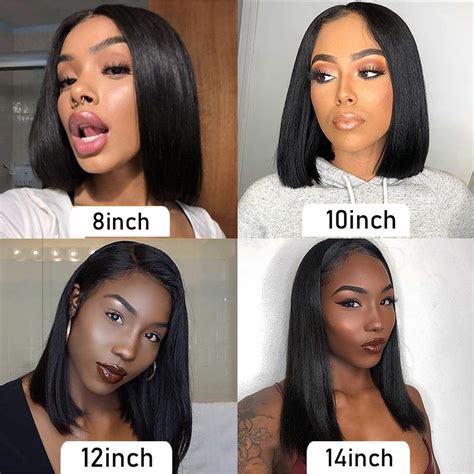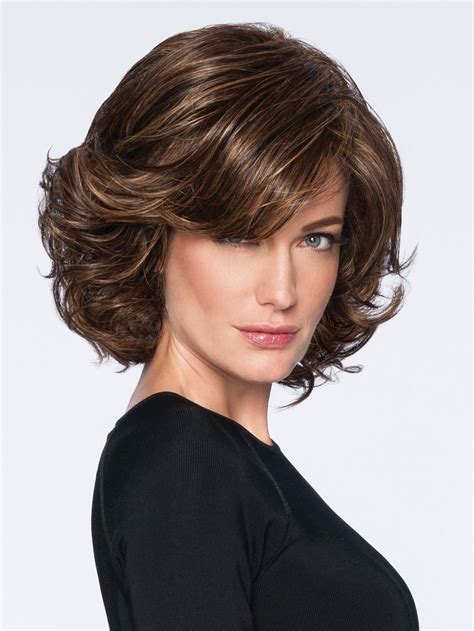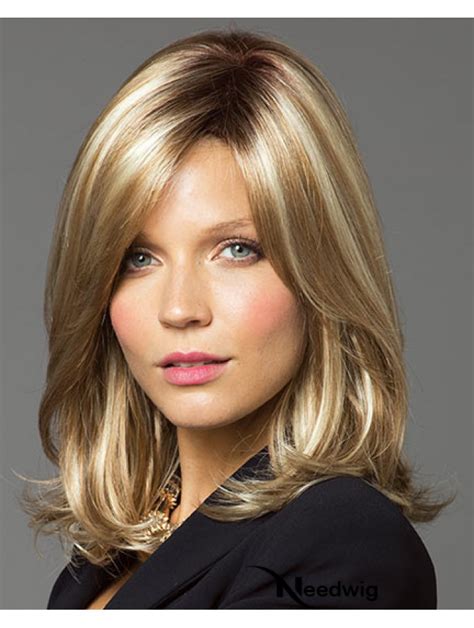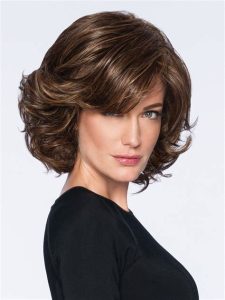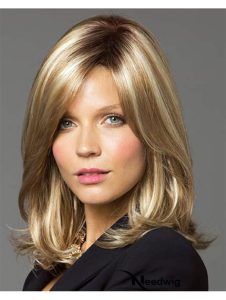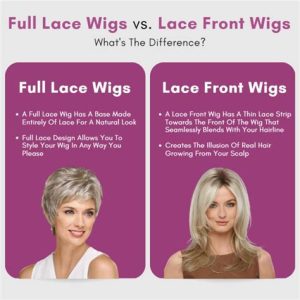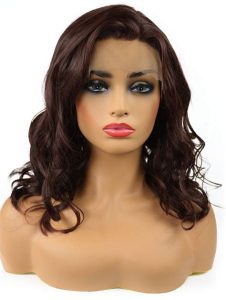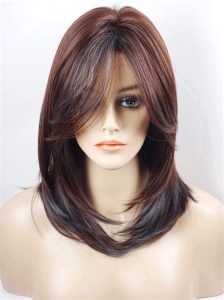Short Wigs VS Straight Lace Front Wigs: The Ultimate 2025 Style Guide
Understanding the Differences between Short Wigs and Straight Lace Front Wigs
Primary Keyword: Short Wigs
Secondary Keywords: Straight Lace Front Wigs, Synthetic Top Wigs
Lace front wigs and short wigs are two popular types of wigs that offer distinct advantages and suit different styles. Navigating their key differences empowers you to make informed choices based on your personal preferences.

Lace Front Wigs
Lace front wigs feature a sheer lace material at the front, which creates a natural-looking hairline. This allows for versatile styling, including off-the-face updos, without the wig line being noticeable. Lace front wigs provide a more secure fit and can last longer than other wig types.
Short Wigs
Short wigs, as the name suggests, are designed to be shorter in length, typically falling above the shoulders. They are lightweight, comfortable to wear, and require less maintenance compared to longer wigs. Short wigs are ideal for those who prefer a more natural, low-maintenance look or those with shorter natural hair.
Synthetic Top Wigs: An Alternative Option
Primary Keyword: Synthetic Top Wigs
Secondary Keywords: Short Wigs, Straight Lace Front Wigs
Synthetic top wigs combine the benefits of both lace front wigs and short wigs. They feature a synthetic material at the top that resembles natural hair, providing a natural look without the need for lace. Synthetic top wigs are more affordable than lace front wigs and offer a wider range of color and style options.
Straight Lace Front Wigs vs. Short Wigs: Which is Right for You?
The choice between a straight lace front wig and a short wig depends on your individual needs and preferences.
Consider a straight lace front wig if:
- You want a natural-looking hairline
- You prefer versatile styling options
- You’re willing to invest in a higher-quality wig
Consider a short wig if:
- You prefer a more low-maintenance look
- You want a lightweight and comfortable wig
- You have shorter natural hair
Synthetic Top Wigs: The Best of Both Worlds
Synthetic top wigs offer a viable alternative that combines the affordability and style options of synthetic wigs with the natural look of lace front wigs. They are particularly well-suited for those who:
- Want a natural-looking wig at an affordable price
- Prefer a wider range of color and style options
- Are new to wearing wigs and want a low-maintenance option
Comparing Short Wigs, Straight Lace Front Wigs, and Synthetic Top Wigs
| Feature | Short Wigs | Straight Lace Front Wigs | Synthetic Top Wigs |
|---|---|---|---|
| Length | Short, typically above shoulders | Can be any length | Short or medium length |
| Hairline | Natural or synthetic | Natural-looking lace hairline | Synthetic material at the top |
| Comfort | Lightweight and comfortable | Secure fit | Comfortable |
| Maintenance | Low-maintenance | High-maintenance | Medium-maintenance |
| Price | Affordable | Expensive | Affordable |
| Styling Options | Limited | Versatile | Moderate |
| Natural Look | Natural | Natural-looking hairline | Natural look at the top |
Tips and Tricks for Choosing the Right Wig
- Determine your face shape: Different wig styles complement different face shapes. Consult a stylist or online resources to find the best wig shape for your face.
- Consider your lifestyle: Choose a wig that fits your lifestyle and needs. If you’re active or prefer low-maintenance, a short wig or synthetic top wig may be better suited.
- Experiment with different colors and styles: Don’t be afraid to try different colors and styles until you find one that makes you feel confident and beautiful.
- Invest in quality materials: While wigs can be expensive, investing in quality materials will ensure durability and a more natural look.
FAQs About Short Wigs, Straight Lace Front Wigs, and Synthetic Top Wigs
1. How long do short wigs last?
With proper care, short wigs can last 6-12 months.
2. What is the difference between Remy and non-Remy hair wigs?
Remy hair wigs are made from real human hair that has been collected in a way that maintains the cuticles in the same direction, resulting in less tangling and a more natural look. Non-Remy hair wigs are made from human hair that has been processed, which can lead to more tangling and a less natural look.
3. How to style a short wig?
Short wigs can be styled using heat tools, such as curling irons or flat irons. However, it’s important to use a heat protectant spray to avoid damaging the wig fibers.
4. How to maintain a lace front wig?
Lace front wigs require regular cleaning and conditioning. Use a gentle shampoo and conditioner designed for wigs, and avoid using harsh chemicals or heat when styling.
5. What is the best way to apply a synthetic top wig?
Synthetic top wigs should be applied using a wig cap to protect your natural hair and create a smooth surface for the wig. Secure the wig with wig glue or tape along the hairline.
6. How to prevent a wig from slipping?
Use a wig grip or headband to keep the wig secure and prevent it from slipping off.
7. What are some common pain points when wearing a wig?
Common pain points include discomfort due to a tight or ill-fitting wig, scalp irritation, or headaches.
8. What are the motivations for people to wear wigs?
Motivations for wearing wigs include hair loss, fashion, or the desire to change their appearance.
